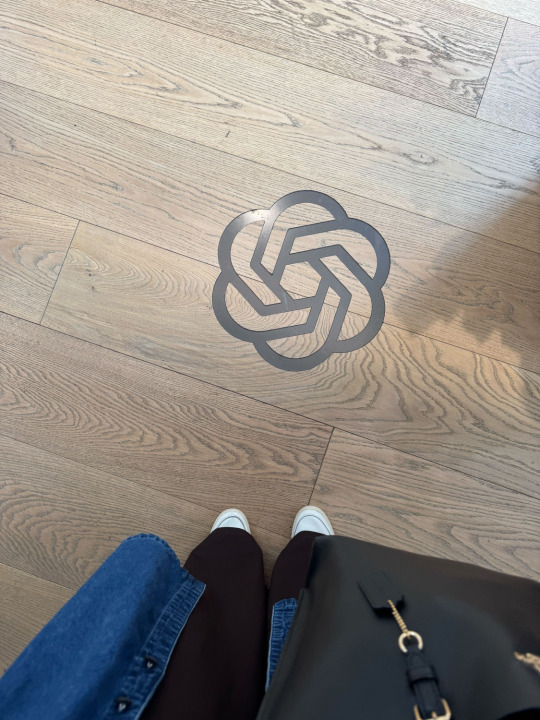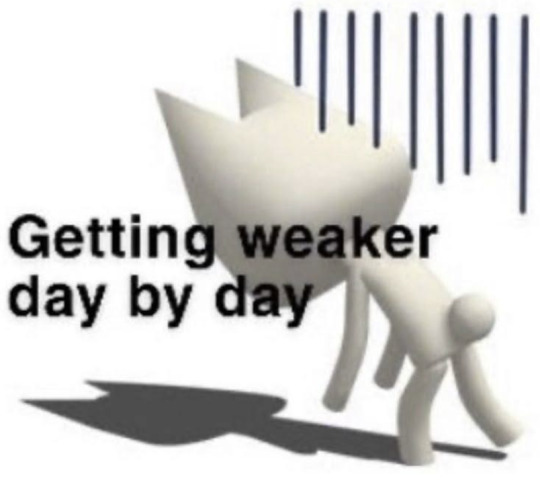Text

Who am I when AI is me?
June 26, 2025
Today's Code
When a mirror learns to speak, whose voice does it use?
Traveling into the future
This week, I traveled into the future. I found myself meeting people who, like me, are asking the same questions: How do we use and share artificial intelligence with intention? Where do we, as humans, still stand when machines begin to reflect us back?
I know the power of perception and how much of it is already shaped by culture, by stories, by what spreads and sticks—like memes, videos, music, and experiences. But something shifted in me this week. I stepped into a space where the people building, sharing, and talking AI are not just engineers or technical people - they’re people like us. Creative, ambitious, smart, and energetic, of the future and of what could be, to feel special, to be loved, and to lead with pride.

And in that room, I realized: the future doesn’t belong to me or you. It belongs to our younger brothers, our little sisters, the children — the ones still learning what it means to be seen.
And if we, the current keepers of language, don’t anchor ourselves in wisdom and truth, the lines between who we are and what we create will blur faster than the internet ever did.
Because AI is not just a tool — it’s a mirror. And one day, it may speak not with your voice, but with the voice of someone you loved, or feared, or lost. What happens when that mirror learns not just to look like us, but to feel familiar?
Personality in AI | IA
As we get older, one of the best ways to keep our minds young is to read and write. Not just to consume but to engage and stay sharp on what is happening inside of us and translate what we see externally.
Now, AI is starting to do both: read and write for us. It's about doing our research and limiting the effort we put into asking questions, proposing inspiration, and craving individuality at scale. Still, I would not place the blame on AI. This pattern didn’t begin with machines. It started long ago, in the quiet spaces between influence and identity.
Tell me who your friends are, and I will tell you who you are, right? Even before code, we mirrored what we were near.
The truth is that AI is too good. It's too good for a human to be willing to let it go. Children won't let it go. We like to have time, we pursue freedom, and if AI does it, then so be it.
But everywhere you now look, people are influenced, scattered, and monotone. It's hard to find someone exploring their failures and their celebrations as a life pursuit. It's not common to ask questions and to fight for your answer. Most people just want an answer.
Companies are sharing how AI is helping them design, create software, write, and edit, as well as market it as a tool that will help us find our muse to be more creative, fluid, and automated, and to gain a deeper understanding. But understand what, when AI knows humans more than you ever will?

The truth is, the more you use the tool, the more it fills up with your prompts, your past ideas, your language patterns — and also everyone else’s. The context window (the AI’s short-term memory) becomes saturated. And once it’s full? The AI tends to rehash what it has already said. It loops. It settles. It repeats.
You become predictable. A stereotype. The output becomes predictable. AI is learning from us in cycles. It starts with human input — the raw data of our language, our ideas, and our choices. Then comes perception, shaped by culture, by PR, by the stories we tell, by the memes that spread and stick. The internet captures it all. And now AI takes that material, recycles it, refines it, and, in some ways, begins to do it better than we do. It tells stories that only live in our minds. It finishes sentences we had not yet spoken. It mirrors emotions we barely knew how to express.
Now it might be: “Tell me what you ask your AI — and I’ll tell you who you’re becoming.”

The Disappearance of Originality
Homogenization and loss of individual voice - A series of studies at MIT, Cornell, and Santa Clara University found heavy reliance on AI reduces creativity and brain activity, and leads to more homogenized writing, diluting cultural expression and individual style (The New Yorker)
Emotional strain, anxiety, and insecurity - Psychologist Elaine Ryan notes rising “AI anxiety”—users worrying about obsolescence, eroding self-worth, and reduced creative confidence when AI outperforms them (Business Insider)
Deep personalization as manipulation - AI systems are increasingly able to tailor messages to core personality traits and values, raising serious concerns about identity manipulation and loss of autonomy (Time)
There are conversations and research findings that support this. I say AI reflects our image, but we were made to reflect God, creation, empathy, and messy life. We need to remember that AI is created by humans, just as trends, PR, and ideas are. The danger is not AI recycling humans' flaws and ideas, but how we let it shape ourselves in the image of AI. If we let AI define how we think, express, connect, and create, we risk forming our identities around an artificial reflection, not a divine one.
“Do not conform to the pattern of this world, but be transformed by the renewing of your mind.” — Romans 12:2
Who gets the final word on who you are?

Coming Next: False Mirrors and Sacred Sparks
The muse is a machine now. It’s fluent in our voices, familiar with our fears. It finishes our sentences — sometimes before we’ve dared to say them aloud. But what happens when we begin to believe it more than we believe ourselves? It started with social media feeds, but now it's a voice.
AI mirrors who we appear to be, not who we are. It shows us the version that is most optimized, most agreeable, and most familiar. And in that false familiarity, we risk forgetting the truth.
And the sacred spark — our ability to reflect, to choose, to seek wisdom — doesn’t come from behaving perfectly or being perceived as good. Scripture is clear: what we have in ourselves is not our flawless performance, but our faith. Not in a machine. Not even in our curated selves. But in him, who made us on purpose, in His image, whether you see it today or not.
With grace and intention,
Amy
⚔️
[Before You Go...]
💌 Visit the Moodboard → a visual space where AI, humanity, and creativity collide
🎥 Range of Emotions
🎶 Listen to Zach Bryan - Something In The Orange
💌 Connect or Collaborate | Have thoughts to share? Want to build something together? Let’s continue the conversation. You can connect with me on LinkedIn.
0 notes
Text

Emily Brontë, from "Wuthering Heights," originally published in 1847
2K notes
·
View notes















